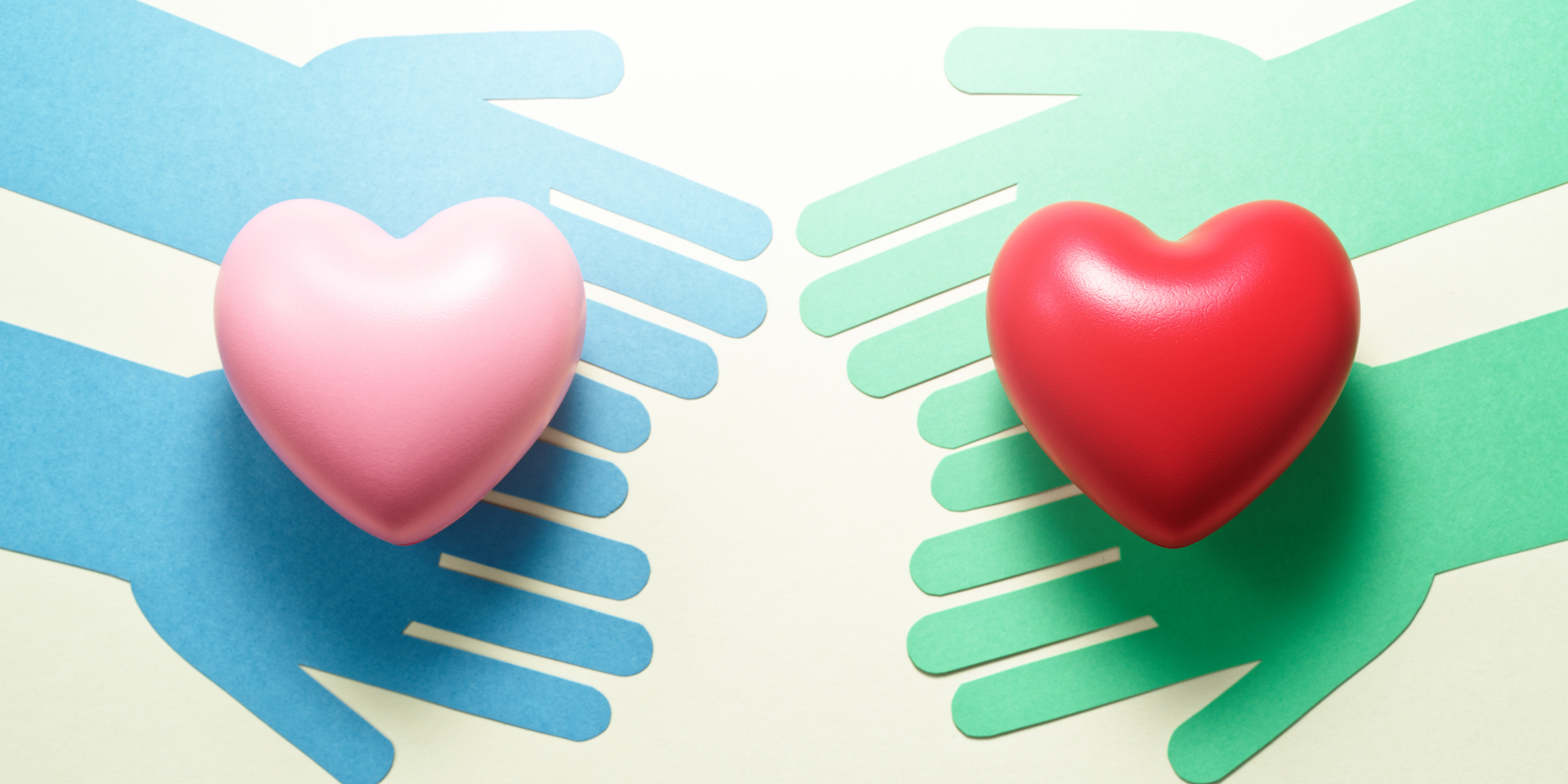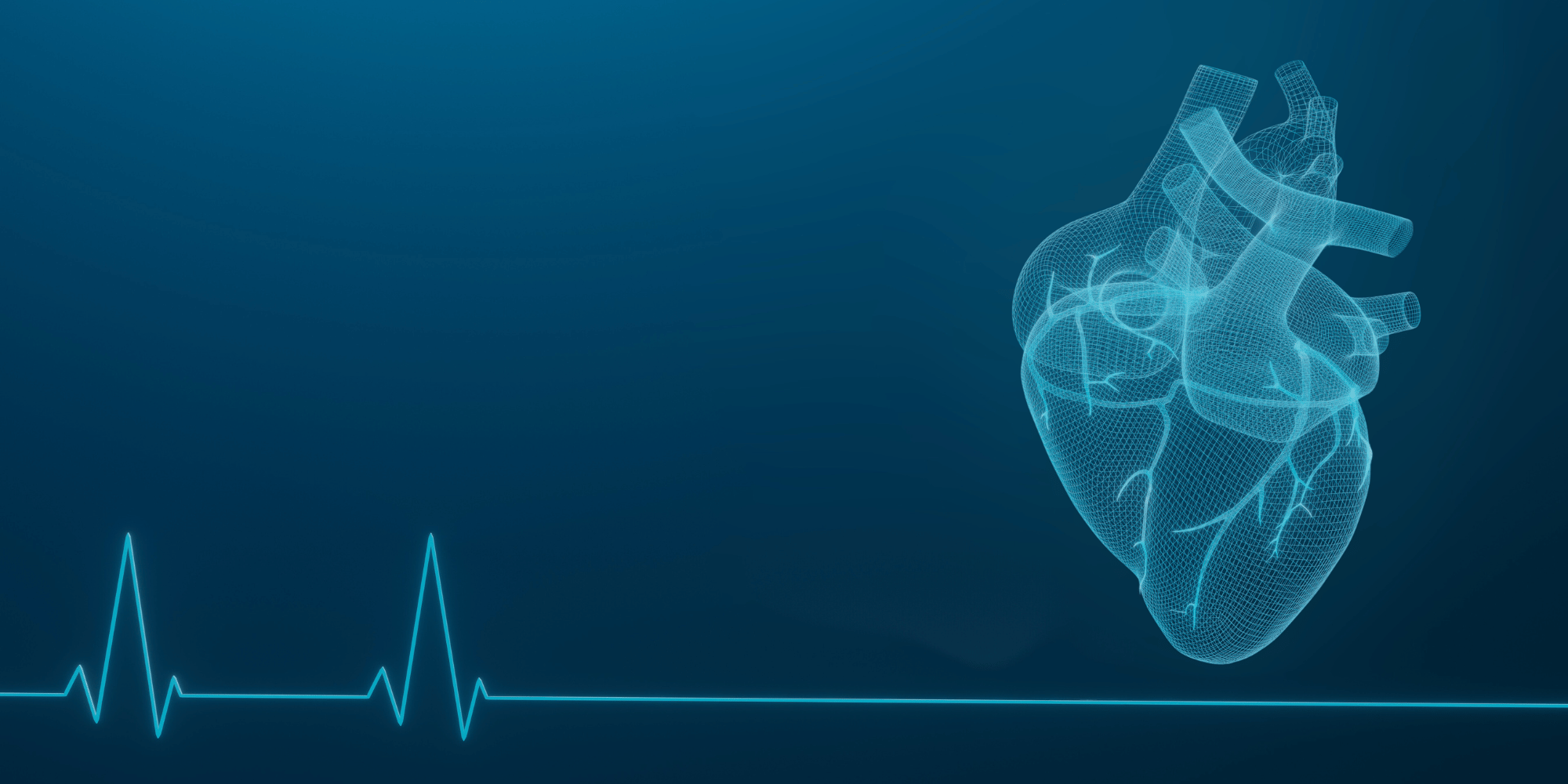Before you know it, we’ll be entering into the second month of the new year! When you think of February, what comes to mind? Many of us associate it with gifts of flowers, candies, and heart-shaped cards to our family, friends, and loved ones. You may not have known that in addition to being the month of Valentine’s, February is also American Heart Month. As we share our heart-felt feelings with those important to us, it’s also a time to look inward to appreciate and care for the organ that symbolizes love.
Caring for our hearts
...and those we give our hearts to!
Our loving relationships – romantic or otherwise – function in a similar way to our beating hearts.
Both are critical to our overall wellness: As human beings, we need socialization to survive. Relationships are the lifeblood of a healthy, fulfilled life. In fact, social isolation and loneliness are a risk factor for premature death. Likewise, we desperately need our hearts to pump oxygen rich life-sustaining blood continuously throughout our lives. Every cell in our bodies depends on oxygen sent from our hearts.
We’re synced together: The people we spend the most time with get us. They understand our moods and are attuned to our feelings and actions. They stand alongside us when we are struggling to navigate life’s ups and downs. Our hearts work similarly, modifying their rhythm to match our needs. You have likely felt your heart pounding during a grueling situation and, conversely, have felt its calm rhythm as you drift to sleep.
They are dependable: One of the critical components of a good support system – whether they be caring partners, family, or friends – is that they are there for us. Day or night, sunshine, or snow, through thick and thin, we know we can rely on them. It’s the same with our hard-working hearts. According to the American Heart Association, our hearts pump about 2,000 gallons of blood daily and beat more than 2.5 billion times in a 70-year lifetime!
Both require ongoing care and attention: A healthy and connected relationship involves a lot of maintenance. If we wish for someone to sit with us on the roller coaster of life and trudge by our side through life’s storms, they require reciprocal devotion. Along those lines, if we want our heart to keep pumping for us, we must care for it with a heart-healthy lifestyle.
Both our relationships and hearts weaken without consistent effort and nurturing.
We may take them for granted: It’s easy to become passive and take a relationship for granted assuming that it will persist simply because it exists. Sometimes, we don’t appreciate our relationships until they’ve been tested, or we’ve lost them entirely. The same can be said for our ever-pumping hearts. It can be easy to forget the continuous effort they put in on our behalf. We often don’t think about our hearts until they fail us.
They’re fallible: No “perfect” couple or friendship is immune to challenges. Relationships can become toxic as disparaging language and behaviors develop. Others grow weary with time. Many partnerships and friendships break up. The hearts in our bodies are vulnerable, too. Health-degrading habits take a toll on them. They deteriorate as we age. We’re prone to relational and literal heartbreak.
Broken Hearts
It’s common for negative relationship tension to build up, unaddressed until one or both partners explode in frustrated rage. It’s the same with our blood vessels. High levels of plaque-forming cholesterols and triglycerides compounded with inflammation narrow our arteries, increasing our blood pressure as blood cells try to squeeze through. Chronic high blood pressure can damage our vessels and heart without much notice. Coronary artery disease, the most common type of heart disease, occurs when blockages in the vessels surrounding the heart obstruct the flow of oxygenated blood. Cardiac tissue dies when it’s starved of oxygen, and the heart fails. Sometimes, heart disease is “silent” in that there may be no presenting symptoms until we experience a cardiac event such as a heart attack or stroke.
Listen to your Heart
The Center for Disease Control and Prevention states that one person dies every 33 seconds in the United States from heart-related disease. The following are urgent warning signs shared by the American Heart Association. Should you experience them, call 911!
Heart Attack Symptoms
- Chest discomfort, tightness, squeezing, pressure, or pain in the center of the chest that lasts more than a few minutes or may come and go.
- Discomfort in other upper body areas may include one or both arms, the back, neck, jaw, or stomach.
- Shortness of breath with or without chest discomfort.
- Other signs include breaking out in a cold sweat, nausea, or lightheadedness.
Stroke Symptoms
Remember the acronym, "F.A.S.T." (Face, Arm, Speech, and Time)
- Face drooping: one side of the face droops or is numb. A sign of this would be an uneven smile.
- Arm weakness: weakness or numbness in one arm. If both arms were to be raised, one would drift downward.
- Speech difficulty: speech is slurred, hard to understand, or even impossible. A simple sentence like, “The sky is blue,” couldn’t be repeated.
- Time to call 911! If any of these symptoms are present, even if the symptoms go away, call 911 immediately.
Avoid Heartaches
Returning to the metaphor of strong social relationships and healthy hearts, it’s critical to recognize that both require care and consistent effort.
Open and honest communication, vulnerability and trust, willingness to compromise, and making time for fun are essential components of any healthy relationship. It’s also valuable to acknowledge that we cannot control the people we’re with. However, we decide how we contribute to the shared relationship. We’re in charge of and responsible for our behavior.
When it comes to our physical hearts, we may have risk factors outside of our control. We cannot change our genetics, biological sex, race, or age. Grim statistics from the National Institute of Health are harrowing. Coronary artery disease affects about 20.5 million adult Americans and results in about 366,000 deaths each year. Fortunately, coronary artery disease is largely preventable.
Lifestyle and behavioral modifications lend us some agency over many heart disease risk factors. The three pillars of the Pritikin Program provide a tried-and-true path:
- Regular Exercise: Our bodies were made to move! Keeping ourselves moving and limiting sedentary behavior provide tremendous heart-related benefits, including lowering blood pressure, resting heart rate, plaque-forming cholesterols, and body fat.
- Heart-Healthy Nutrition: Consuming a wide variety of whole, minimally processed foods provides our bodies and hearts with the nutrient-dense fuel they need. Focusing on fruits, vegetables, whole grains, and lean proteins provides a nutritious diet to help regulate body weight, limit inflammation, and keep our vessels clear.
- Healthy Mind-Sets: Our minds and bodies work in tandem. Managing stress, improving sleep, overcoming addictions, and prioritizing self-care transform our physical and mental health. This perpetuates a positive reciprocal interaction of beneficial thought patterns and behaviors spiraling upward.
Final words to take to heart
Solid relationships and stalwart hearts don’t just happen. They’re meticulously and mindfully maintained. In the month ahead, I encourage you to celebrate your Valentines and challenge you to also celebrate your beating hearts by prioritizing the care and attention they need. Happy February—the month of the heart!


.png)

.png)